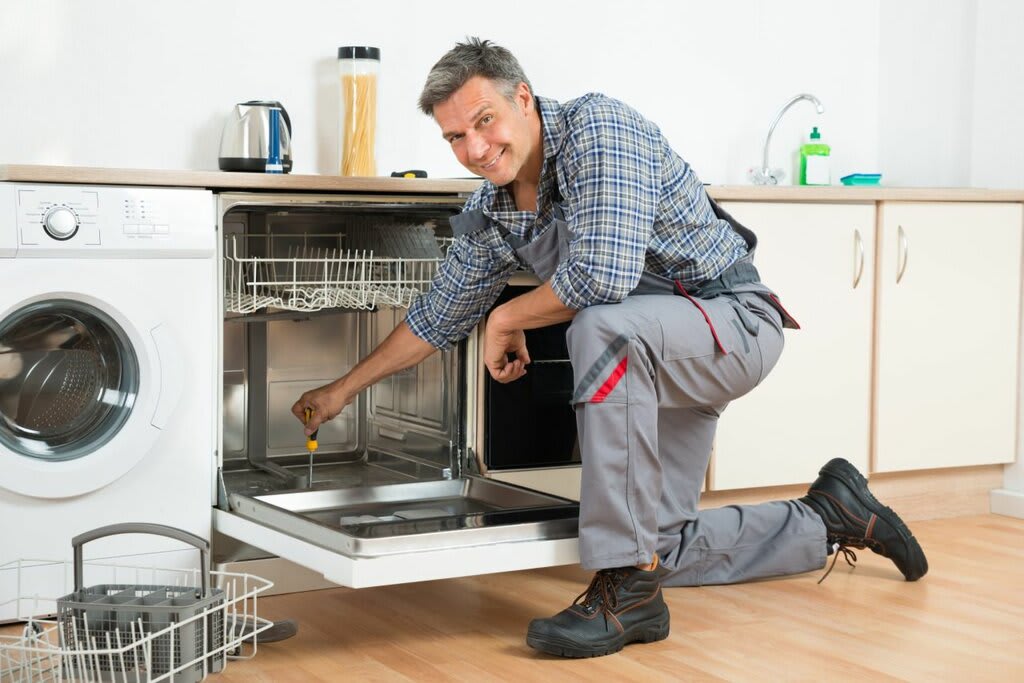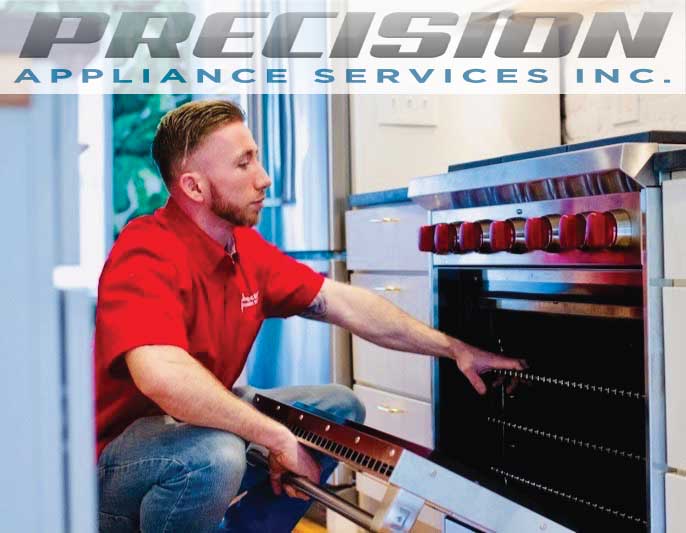Why Your Washing Machine Won’t Drain – Dependable Refrigeration & Appliance Repair Service Washing Machine Repair
Why Your Washing Machine Won’t Drain – Dependable Refrigeration & Appliance Repair Service Washing Machine Repair
Blog Article
The Ultimate Overview to Comprehending Device Repair Work at Home
When your fridge quits cooling or your stove declines to heat, it can really feel overwhelming. Understanding appliance repair at home can save you time and cash. You'll learn to recognize symptoms, use important tools, and follow a methodical troubleshooting procedure. However before you begin, there are crucial security precautions you need to think about. What are one of the most usual troubles, and how can you fix them? Allow's check out the essentials.
Usual Appliance Problems and Their Symptoms
When your devices start acting up, it's crucial to acknowledge the signs early. Disregarding them can lead to bigger concerns and expensive repair services. As an example, if your refrigerator isn't cooling down properly, you could observe warm areas or condensation forming. This could show a falling short compressor or an obstructed vent.Your dishwasher might reveal troubles with unclean meals or unusual noises throughout cycles. If you listen to grinding or clanking, it's time to investigate.A washing maker that won't rotate or drain pipes can leave you with soggy laundry, suggesting a blocked drain or a malfunctioning pump.Lastly, if your oven's temperature seems off or it takes forever to pre-heat, you could be managing a faulty thermostat. By staying sharp to these signs and symptoms, you can resolve problems prior to they escalate into major repair services.
Crucial Tools for Device Fixing
When you're taking on device fixings in your home, having the right tools is crucial. Basic hand devices like screwdrivers and pliers will help you take apart and take care of various appliances, while electric screening tools ensure you're working securely with electrical wiring. Allow's discuss what you require to get going on your repair service journey.
Standard Hand Tools
Having the right tools is necessary for reliable device repair work in the house. Beginning with a dependable screwdriver collection, including both flathead and Phillips types, as screws are usual in device assembly. Pliers are also crucial; they aid with gripping, twisting, and cutting cords or little elements. A pair of needle-nose pliers can reach difficult situations easily. You'll need a good adjustable wrench for tightening up or loosening up nuts and bolts. An energy blade is handy for puncturing product packaging or insulation. Don't forget a sturdy workbench or surface to securely arrange your tools and components. With these basic hand tools, you'll be well-prepared to take on most appliance repair services that come your method.
Electrical Testing Gadgets
Alongside basic hand devices, electrical screening devices play a necessary role in device fixing. These devices help you identify electrical issues and guarantee appliances function securely. A multimeter is essential; it gauges voltage, existing, and resistance, enabling you to determine issues rapidly. A non-contact voltage tester is another must-have, letting you find online wires without making straight call, improving your security. Clamp meters are excellent for measuring present circulation in cords without detaching them, conserving you effort and time. Furthermore, circuit testers can quickly examine if electrical outlets are working effectively. By utilizing these tools, you'll enhance your troubleshooting process and improve your repair work abilities, making device maintenance a great deal simpler.
Step-by-Step Overview to Diagnosing Appliance Issues
When your appliance breaks down, it can be discouraging, but detecting the concern doesn't need to be overwhelming. You'll learn to identify common troubles and apply efficient troubleshooting strategies. Allow's go through the steps to get your home appliance back in working order.
Typical Home Appliance Issues

Fixing Methods Described

Repairing Major Cooking Area Appliances: A Closer Look
Have you ever wondered just how to deal with common issues with your kitchen home appliances? Fixing significant kitchen area devices like refrigerators, stoves, and dish washers can be easier than you believe. Beginning by determining the issue-- whether it's a refrigerator not cooling down or a stove that will not heat. Often, an easy reset or checking the power source can solve the issue.For fridges, clean the condenser coils and examine the door seals. If your oven's not home heating, examine the home heating aspect and thermostat. Dishwashers may just need a clean filter or a reset to get them back in action. Constantly unplug the home appliance before diving right into repair services to assure your safety.Don' t neglect to get in touch with the customer handbook for specific troubleshooting ideas associated with your model. With a little patience and the right tools, you can with confidence deal with device repair work and conserve cash while doing so!

Repairing Washing Appliances: Tips and Techniques
When your washing home appliances start acting up, it can feel website overwhelming, however fixing them does not need to be a problem. Begin by checking the power supply. Verify the device is connected in and the outlet is functioning. Next off, evaluate the door or cover button; a damaged button can stop the machine from operating.For washing machines, if it's not spinning, check for unbalanced loads. Rearranging the clothes may address the concern. If your clothes dryer isn't home heating, clean the lint filter and examine the air vent for blockages.Listen for uncommon sounds; they can indicate a trouble. If your home appliance is dripping, check the hoses for cracks or loose links. Paper any mistake codes presented on electronic displays, as they can lead you in identifying the issue. Ultimately, seek advice from the individual guidebook for particular troubleshooting suggestions connected to your design.
Safety And Security Preventative Measures to Take During Repairs
Prior to you start any home appliance repair services, it's necessary to focus on security to avoid accidents or injuries. Unplug the appliance or turn off the circuit breaker to guarantee no power reaches it while you work. Usage protected devices to lessen the threat of electric shock. Put on security goggles and gloves to protect on your own from sharp edges or debris (Dependable Refrigeration & Appliance Repair Service Washer repair near me).Make certain your work space is tidy and well-lit, so you can see what you're doing. Keep kids and family pets far from the location to avoid diversions and potential hazards. If you're taking care of gas appliances, be added mindful; check for leakages before proceeding.Take your time, and do not rush via fixings. If you feel uncertain concerning any kind of action, it's much better to stop briefly and research study than to presume. Following these precautions will aid develop a safer environment for your DIY device repair job
When to Call an Expert for Assistance
Just how do you understand if it's time to hire a specialist for home appliance repairs? If you've attempted basic troubleshooting without success, it's a clear sign. If your appliance still won't begin or shows uncommon noises after resetting it, don't hesitate to seek expert help.When you notice leaks, smoke, or shedding smells, focus on safety and security and call a professional quickly. These problems can result in even more significant damage or position risks to your home.Also, if your device is under warranty, getting in touch with a professional is typically the very best course. They can guarantee that repair services will not void your service warranty, conserving you cash in the lengthy run.Finally, if you're unsure or awkward with complicated repair work, it's smart to leave it to the specialists. Remember, tackling difficult issues without the appropriate experience can cause costly mistakes. Trust fund a professional when doubtful!
Regularly Asked Concerns
Exactly How Can I Stop Device Troubles in the Future?
To avoid appliance problems in the future, you should carry out routine maintenance, check for wear and tear, tidy filters, and stay clear of overloading. Staying aggressive will assist extend their life-span and keep them running efficiently.
What Are the A Lot Of Common DIY Appliance Fixing Mistakes?
You could overlook safety and security precautions, avoid repairing actions, or make use of incorrect tools when trying do it yourself appliance repair work. Hurrying the process or disregarding manufacturer standards can bring about even more considerable concerns and pricey mistakes. Keep client and informed!
How Do I Know if a Part Needs Replacement?
You can tell if a part requires replacement by looking for uncommon noises, leakages, or irregular efficiency. If the home appliance battles to operate properly or reveals visible damages, it's likely time for a substitute.
Can I Utilize Generic Parts for Home Appliance Repair Works?
Yes, you can make use of generic components for device repair services, but determine they work - Maytag Washing machine repair Dependable Refrigeration & Appliance Repair Service. Generic components might save you cash, yet they might impact performance or durability, so evaluate your alternatives meticulously before deciding
What Service Warranties Cover Home Appliance Fixes?
A lot of home appliance guarantees cover repairs for manufacturing defects, yet they frequently leave out damages from misuse. Inspect your guarantee terms carefully, as some may require utilizing licensed service technicians and original parts for protection to remain legitimate.
Report this page